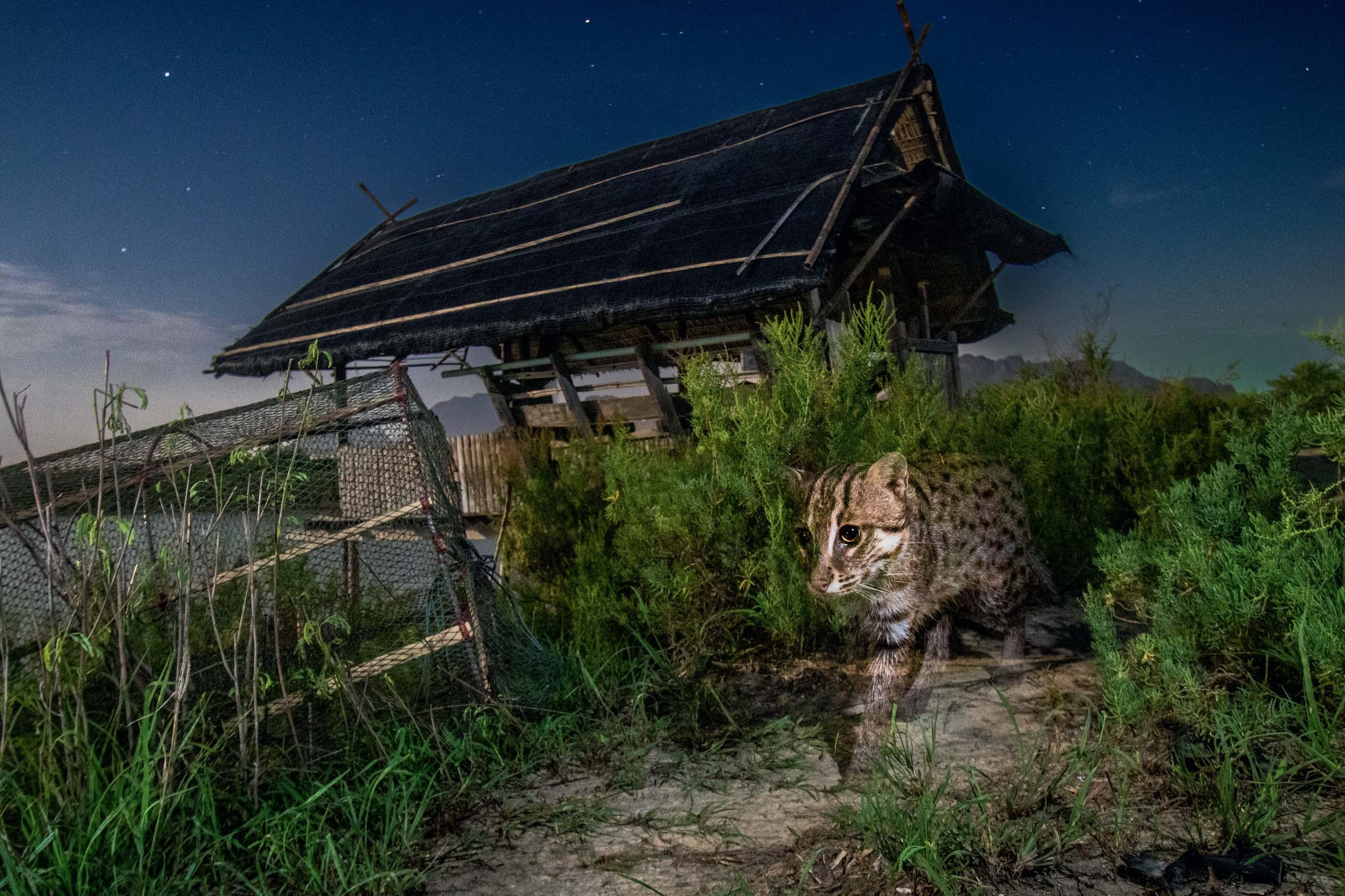Try GOLD - Free
NIGHT PROWL
BBC Wildlife
|May 2024
As shrimp farms encroach on fishing cat habitat in Thailand, scientists are learning how these felines are adapting to a changing world
-

Shining a light
A fishing cat - a medium-sized feline native to South and South-East Asia - prowls a traditional shrimp farm near the border of Khao Sam Roi Yot National Park, Thailand. This rare wetland specialist is well adapted to its watery home, with partially webbed feet and non-retractable claws for spearing slippery fish. The species is in decline across its range, largely due to habitat loss and poaching. In this part of Thailand, fishing cat habitat has become fragmented by shrimp farms and fishponds - so researchers are investigating how the animals are navigating this altered landscape.

To catch a cat
Biologists Chaiwat Klakhaeng and Wiroon Mongkonsin set a box-trap to catch a fishing cat for radio-collaring. Bait goes in the small rear section, luring the animal into the larger front section. When a cat enters the trap, it steps on a pressure plate, triggering the entrance flap to swing shut. Boxtraps are considered a very safe way of catching cats.

A changing view
Designated in 1996 as Thailand's first marine park, Khao Sam Roi Yot encompasses 98km² of coast facing the Gulf of Thailand. The area is known for its steep, forested hills and expansive marsh, but shrimp farms are dramatically altering the landscape.

Night watch
This story is from the May 2024 edition of BBC Wildlife.
Subscribe to Magzter GOLD to access thousands of curated premium stories, and 10,000+ magazines and newspapers.
Already a subscriber? Sign In
MORE STORIES FROM BBC Wildlife

BBC Wildlife
"I was terrified the elephant would ram us"
African elephant in Kenya
2 mins
January 2026

BBC Wildlife
ALL YOU EVER NEEDED TO KNOW ABOUT THE Fennec fox
THE FENNEC FOX IS THE SMALLEST fox in the world, with a body length that can be as little as 24cm.
3 mins
January 2026

BBC Wildlife
INTO THE PLASTISPHERE
A unique synthetic ecosystem is evolving in our oceans – welcome to the plastisphere
7 mins
January 2026

BBC Wildlife
“More than half of all animal life exists in a parasitic relationship, and all life lives in symbiosis”
Our survival depends on species evolving to live together - but some relationships take dark turns
7 mins
January 2026

BBC Wildlife
Are animals able to dream?
SLEEP IS A MYSTERIOUS THING. FOR A long time, we weren't sure why we do it.
1 mins
January 2026

BBC Wildlife
Does a cuckoo know it's a cuckoo?
ABSURD LITTLE BIRDS ACROSS THE world lay their eggs in the nests of other species, leaving the hapless parents to raise a changeling at the expense of their own offspring.
2 mins
January 2026

BBC Wildlife
Orcas killing young sharks
Juvenile great whites are easy prey for orca pod
1 mins
January 2026

BBC Wildlife
Ocean goes on tour
Acclaimed film touring the UK, backed by live orchestra and choir
1 min
January 2026

BBC Wildlife
Feisty bats hunt like lions
Winged mammals use a 'hang and wait' strategy to take down large prey
1 mins
January 2026

BBC Wildlife
SNAP-CHAT
Richard Birchett on magical merlins, wily coyotes and charging deer
2 mins
January 2026
Listen
Translate
Change font size
